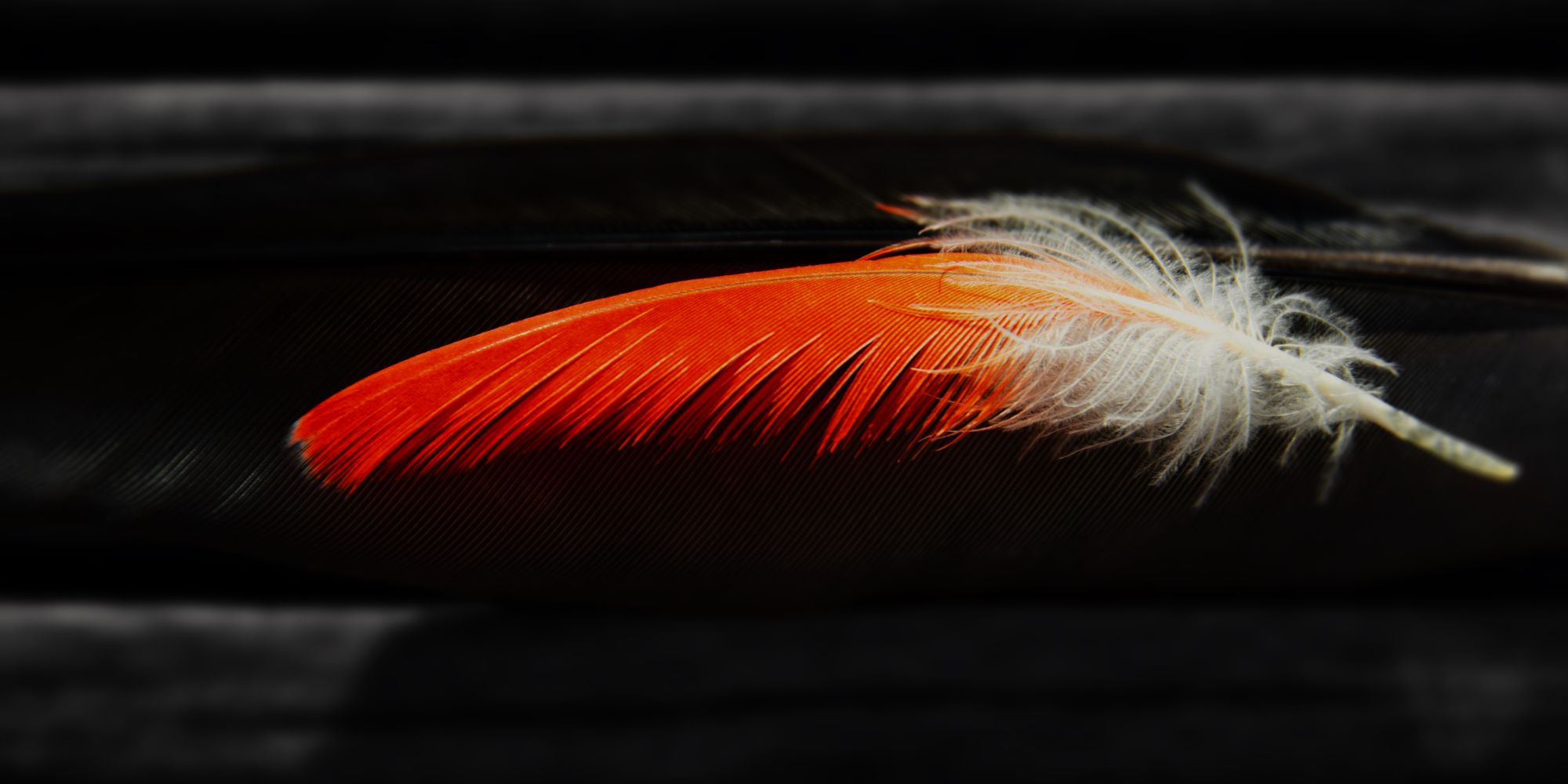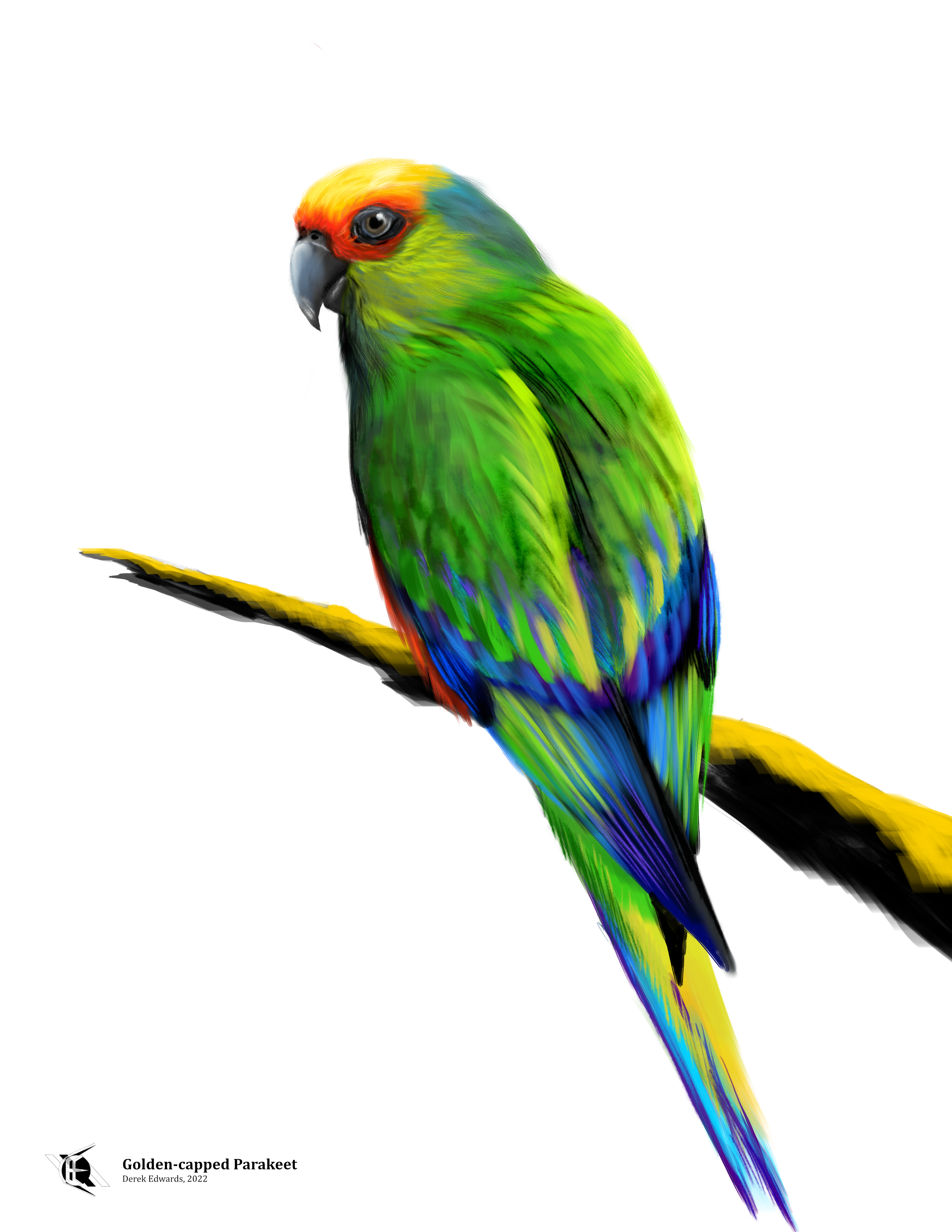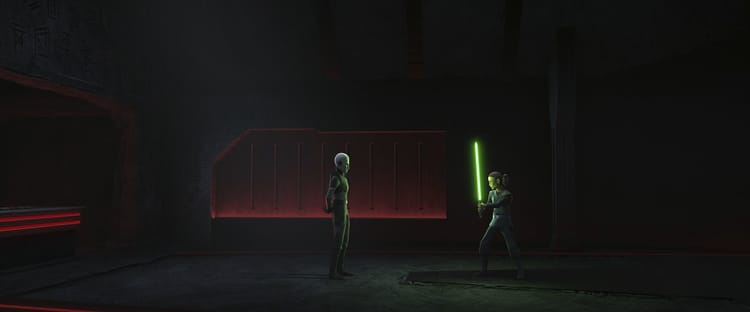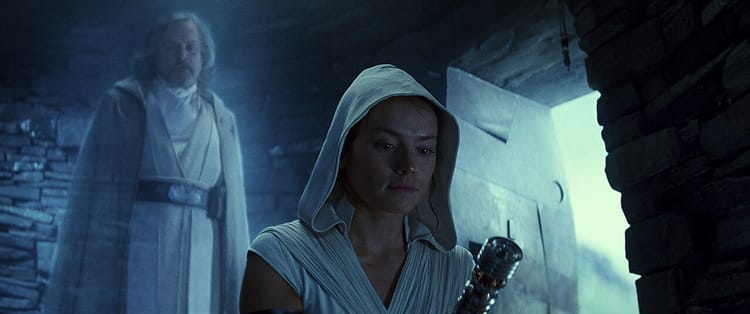
Running Commentary 11/14/2022
Hello,
I’m torn what to do two weeks from now with this newsletter. I don’t really want to spend Thanksgiving writing, but I also do want to get my thoughts on the Andor finale out in a semi-timely manner. I might just write up about Andor, re-publish my turkey BotW, and post some best-of Curations. I’ll let you know what to expect next week.
Anyway...
Watching...
Andor
Episode 10 sees Cassian finally getting out of prison, and sees Mon Mothma…well, sees Mon Mothma sit around her apartment looking concerned. Here are my notes:

- This prison break episode did not disappoint. This show has a real rhythm going, with a few episodes of good film-making and well-written dialogue and interesting storytelling, followed by one of the actually really great episodes where the set-up pays off and things happen. This episode was one of the really great ones.
- As a (somewhat) formally trained swimmer, I can attest that learning how to swim properly takes a lot of time and practice. But just swimming well enough to keep above water and move forward, even if you’ve never swam before, but have just seen other people do it, should be within most people’s ability. I’d think Kino Loy would have a decent chance of escape.
- So, Luthen has a mole in the ISB. I’m interested in how Lonni’s scenes from earlier episodes play out watching them again, knowing what I know now. There are probably clues I missed.
- The Mon Mothma scenes continue to be the week point of the show. Securing funding is a bit too abstract a mission to build a story around, and Mothma’s concerns about being spied on seems to have been dropped behind the same cabinet of storylines as Cassian’s sister and that one kid’s manifesto. I’m disappointed, since Mothma is second only to Dooku as far as Star Wars characters who need more exploration than they got in the films go. I was hoping this show would be her Jedi Lost. So far, her scenes have felt obligatory, and her position in the Rebellion seems a lot less prominent than would be expected.
- As many guessed, Cassian escapes alongside Ruescott Melshi (who you may or may not remember as the guy sent to spring Jyn Erso from Imperial custody at the beginning of Rogue One). I’m not sure how long they’ll stick together. I think it would be interesting if Melshi had been in prison for genuine Rebel activity, and is the one to bring Cassian into the movement permanently.
The Peripheral
Okay, I’ve caught up on the show. Sorry for missing it last week. Here are my notes on episodes 4 and 5:

- We are now into the second half of the season, and things are starting to get more fleshed out and less mysterious. We now know what it was that Aelita stole at the beginning, and we know what all happened between Flynne’s time and Wilf’s. The show is now less about finding out what’s going on, and more about seeing if Aelita’s mission to stop techno-mind-enslavement is successful. (This would make this show excellent counter-programming for Apple’s Foundation series, if that series meaningfully followed Asimov’s books.)
- Very little attention has been paid, so far, to anything Flynne might do to prevent the Jackpot from occurring in her timeline. Maybe that’ll be the focus of a second season.
- I’m not sure what Lev’s plans are in creating new stubs. It seems like quite a thing to be introducing this late in the series. Maybe this is also set-up for a second season, or for the finale.
- The scene of dueling-keyboard hackers, while a cyberpunk staple, was as stupid here as it is anywhere.
- Halfway in, I still like this show quite a lot. It’s not the greatest show of all time, but I feel like it deserves at least a little buzz, which it doesn’t seem to be getting.

Bird of the Week
As the first flakes of snow of the season fall past my window, I feel inclined to head to the Southern Hemisphere for this week’s bird. So let’s go to Brazil. The Golden-capped Parakeet is a rare parrot found in the forests surrounding and inland from São Paulo and Rio de Janeiro, with another population located up the coast in the state of Bahia. Within this limited range, the species is fairly numerous, and the ICUN rates the species as of Least Concern regarding potential extinction. However, this bird is endemic to the most heavily populated corner of Brazil, and has consequently seen a significant and ongoing loss of habitat.
So, once again, we have the slippery term “parakeet”. Back when I featured the budgerigar, I tentatively defined parakeets as “small, long-tailed parrots that feed on seeds”. That’s still mostly true, but the golden-capped and related parakeets eat fruit (and maize) and don’t have particularly long tails, so they’re exceptions. Adding to the confusion is the fact that, while scientists call these birds parakeets, bird-keepers call them conures. “Conure” is not a term many ornithologists nowadays; it refers to either large parakeets or small parrots (the golden-capped is a foot long from beak to tail tip) that formerly were classified in the genus Conurus (from the Greek for “cone-tailed”), though that genus has since been broken up into several others.
Today, the golden-capped parakeet is known to science as Aratinga auricapillus. The German naturalist Heinrich Kuhl gave it the name “auricapillus”, simply meaning “golden-capped” in Latin, as part of his broader cataloging of the world’s parrots. The genus Aratinga was named by a different German naturalist, Johann Baptist von Spix. He, along with yet a third German naturalist, Friedrich Philipp von Martius, went on an expedition into the Brazilian Amazon in 1817, seeking out (and finding) unknown species. They collected the first specimen of what was later called Spix’s macaw, a blue parrot that is now extinct in the wild, but that’s another bird for another week. Spix derived the genus name from “ará tinga”, a phrase meaning “bright bird” in the language of the local Tupí people.

Curation Links
The Scent of Flavor | Linda Bartoshuk, Inference
An argument for “flavor” being an inherent property with its own dedicated human sense, distinct from smell or taste. It has long been known that a person with a plugged nose will miss most of the proper experience of eating, and it was assumed that what was lacking was the smell of the food. But the olfactory nerves of the nose do something else with the signals received while eating than with those received while merely sniffing.
Evermore: The Theme Park That Wasn't | Jenny Nicholson
[VIDEO] A lengthy but well-researched and well-delivered account of an indie theme park of sorts in Utah. First envisioned as a spectacular Disney World-killer, then, much more modestly, as a whimsical botanical garden, Evermore now exists as a sort of overgrown Renaissance Faire. The hobby project of a lesser-known tech billionaire, Evermore has its fans but has struggled to make money, due in no small part to the Covid pandemic but also due to a series of baffling financial decisions, from buying actual antique European tombstones as decorations to suing Taylor Swift. (3 hours, 48 minutes)
Have You Ever Tried to Sell a Diamond? | Edward Jay Epstein, The Atlantic
First published in 1982, this piece addresses something that remains an issue forty years later: diamonds are, by rarity, only semi-precious stones. The high cost of gem diamonds is the result of heavy marketing and tight control of the market by a mining cartel, but that high cost can only be exacted by professional jewelers. At the point of resale, open market forces re-assert themselves pitilessly over the gems. A private re-seller will only see a fraction of what they paid, if they can find a buyer at all.
The Whelk | Samara Auman, Clarkesworld
[FICTION] "Nostalgia died a quiet death, wrapped in cellophane and power cords. The future had killed it. The ghosts of yesteryear’s fragrances no longer haunted, no longer hung and clung to the passersby. Instead, those ghosts lay shriveled like salted slugs in the perfectly modulated light of streetlamps and roadside LEDs. And I, a robot programmed to recreate the sweet singsong fog of nostalgia wherever I wandered, withered alongside those ghosts."
See the full archive of curations on Notion






Member Commentary